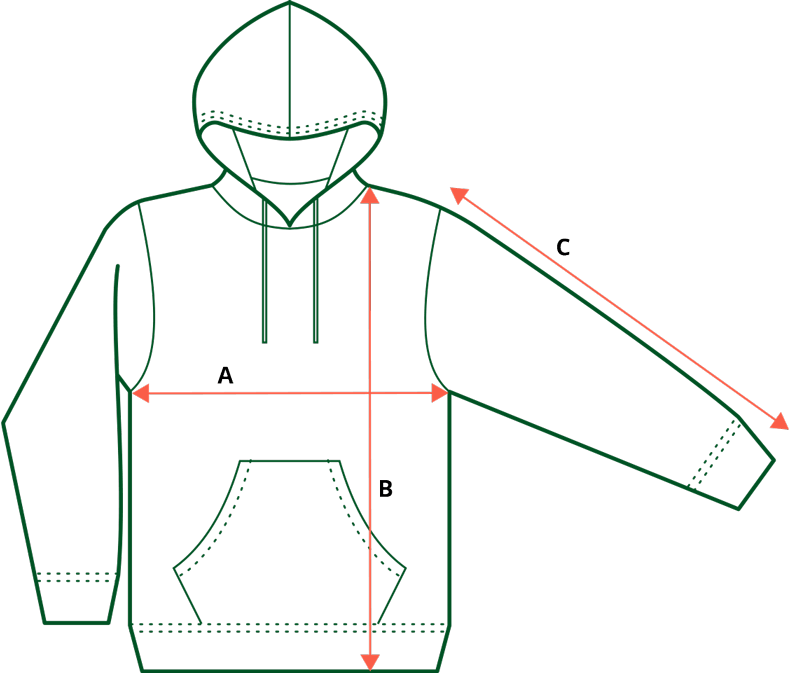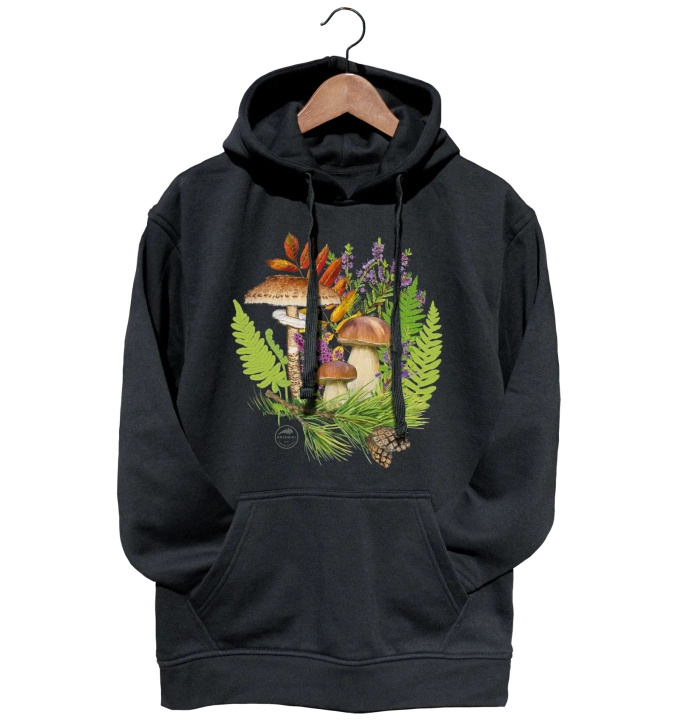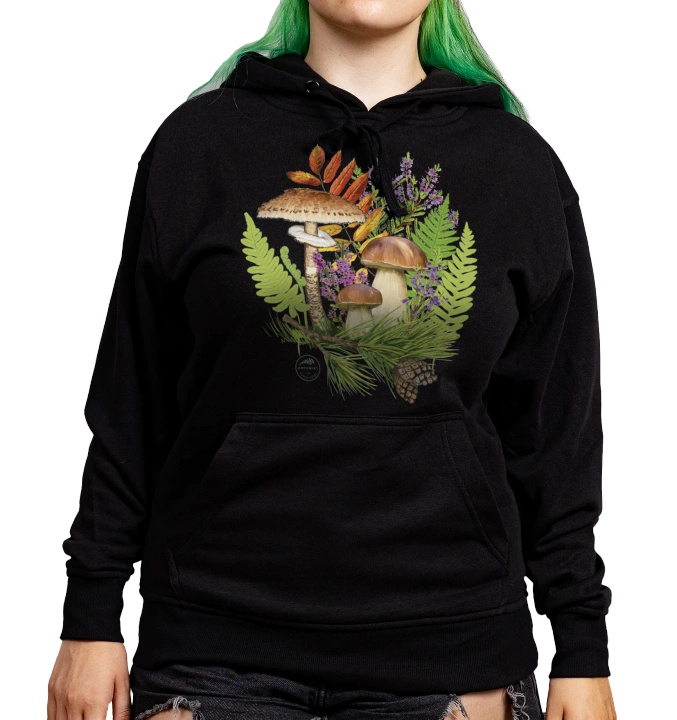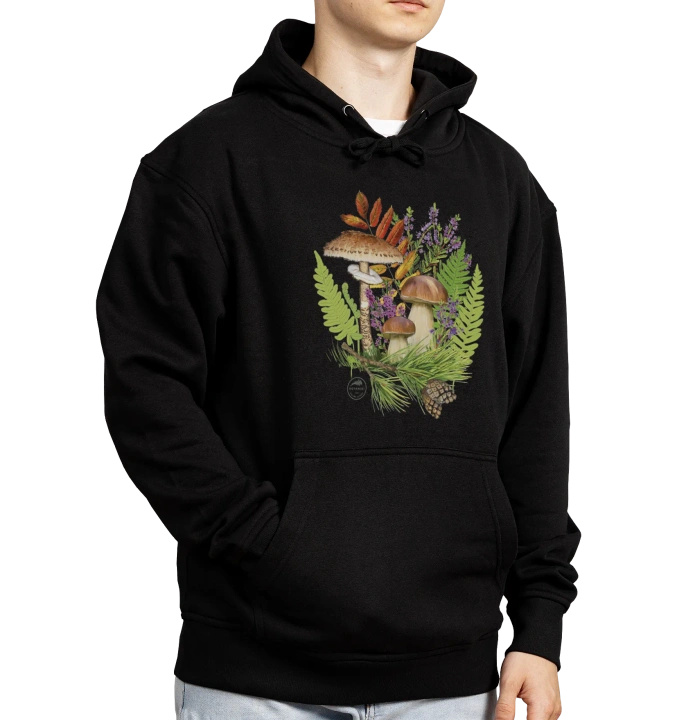Autumn treasures of the woods — hoodie
- A hoodie with a plant motif will allow you to manifest your passion and make you more recognizable to people who share your hobby. A warm hoodie is the perfect solution for cold days. Knit composition: 65% cotton, 35% polyester.
Subscription products in your shopping cart
Set one delivery frequency for all subscription products in your cart every:
Subscription products in your shopping cart
The lowest layer of the forest — the forest floor, is one of the most remarkable ecosystems, consisting of mosses, fungi, lichens, low herbaceous plants, ferns, and mushrooms. The forest floor is inhabited by countless species of insects, small amphibians and reptiles, as well as many small mammals and birds.
An important role in this network of connections is played by fungi — some of the least understood organisms. Fungi do not produce their own food, so they cooperate with trees and their roots to obtain nutrients. In return, they enable tree roots to absorb more water from the surroundings. This type of coexistence between tree and fungus is called mycorrhiza. Some forest fungi produce large fruiting bodies, some of which are highly poisonous.
Another group of organisms living in the forest floor are lichens. They are a unique example of the combination of two organisms: a fungus and an alga. Lichens are pioneer species, meaning they are the first to colonize unfavorable and inhospitable areas.
The forest floor is often covered with a layer of green mosses. The most common moss species found in our forests is the haircap moss (Polytrichum commune). It often forms dense carpets, covering the ground like a green, soft rug. Mosses like moisture and have remarkable abilities to accumulate and absorb water.
The conditions in the lower layer of the forest provide an ideal habitat for many fern species. One of the most common is the common polypody (Polypodium vulgare). In the forest floor, we can also find other fern species, such as the male fern, ostrich fern, bracken, and hart's-tongue fern. Ferns grow densely, forming tall thickets, and their young spring leaves are characteristically curled like shepherd’s crooks.
The group of ferns also includes clubmosses, all of which are protected, and their name comes from the characteristic forked ends of their stems. The most well-known species of clubmosses are stag’s-horn clubmoss and juniper clubmoss.
In addition to ferns and clubmosses, horsetails also appear in the forest floor. They are related to ferns and clubmosses, and their stems take on the very characteristic shape of delicate, small trees. The name indicates a high content of silica in the plant. During the Carboniferous period, horsetails reached the size of contemporary trees and, along with giant ferns and clubmosses, covered large land areas, leading to the formation of valuable coal.
The forest floor also contains flowering plants, such as the beautifully scented lily of the valley.
Spring in the forest is heralded by blooming wood anemones, which flower in large groups as early as March. It is in spring that the most light reaches the forest floor, enabling their growth. Later, when the leaves appear, it becomes darker on the forest floor, and only shade-loving plants like ivy and European wild ginger remain. The forest floor also features expanses of blueberries and wild strawberries, which are a food source for animals. Characteristic of coniferous forest floors are the purple-blooming heathers in September.
| Size | Width (A) | Length (B) | Sleeve (C) |
|---|---|---|---|
| S | 54 cm | 69 cm | 58 cm |
| M | 56 cm | 70 cm | 59 cm |
| L | 58 cm | 71 cm | 60 cm |
| XL | 60 cm | 72 cm | 61,5 cm |
| XXL | 62 cm | 74 cm | 64 cm |
How to measure?
Hoodies are measured flat, loosely. The measurement, which can be found in the table, was taken at the location indicated by the arrows in the picture below:














